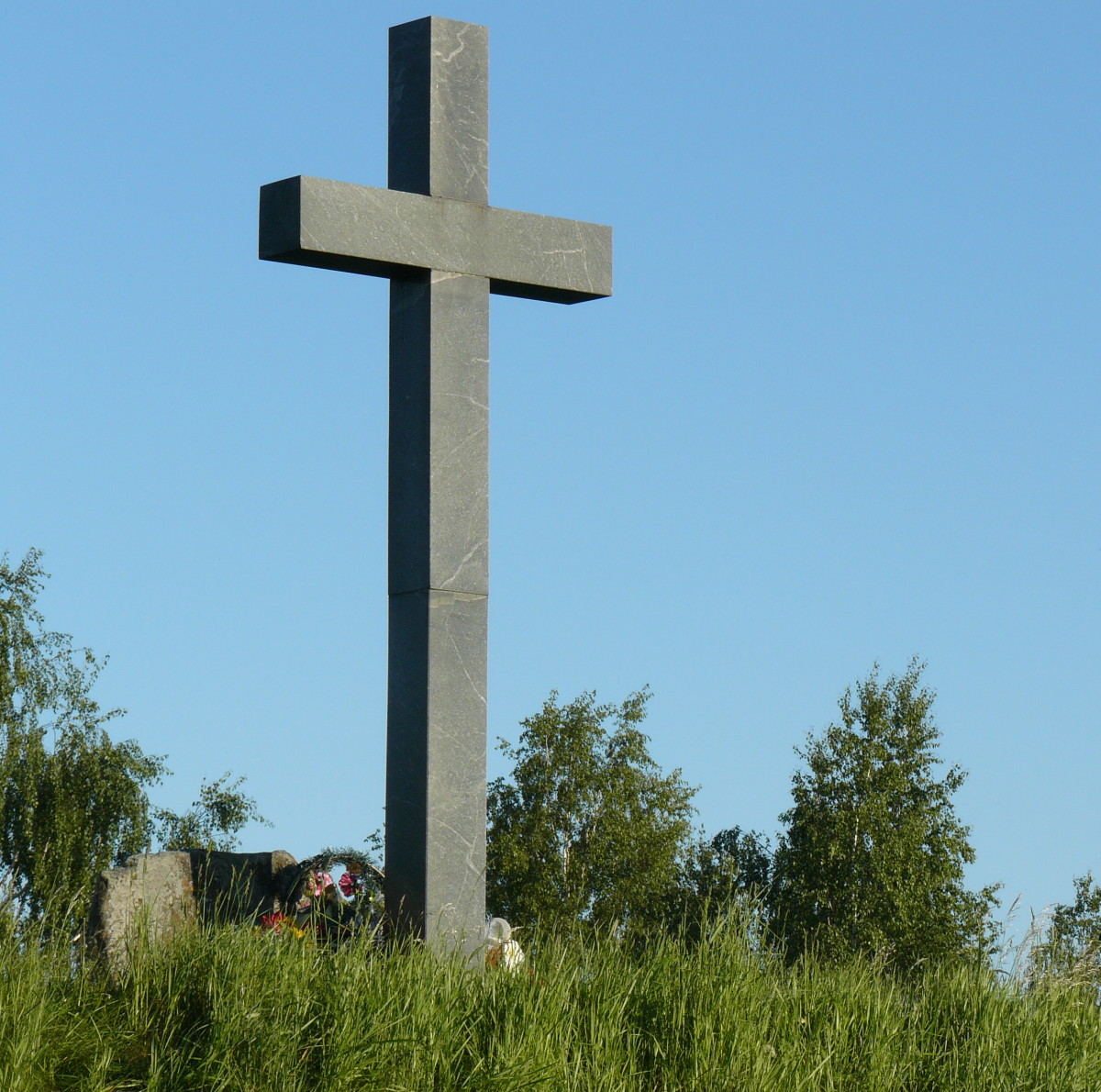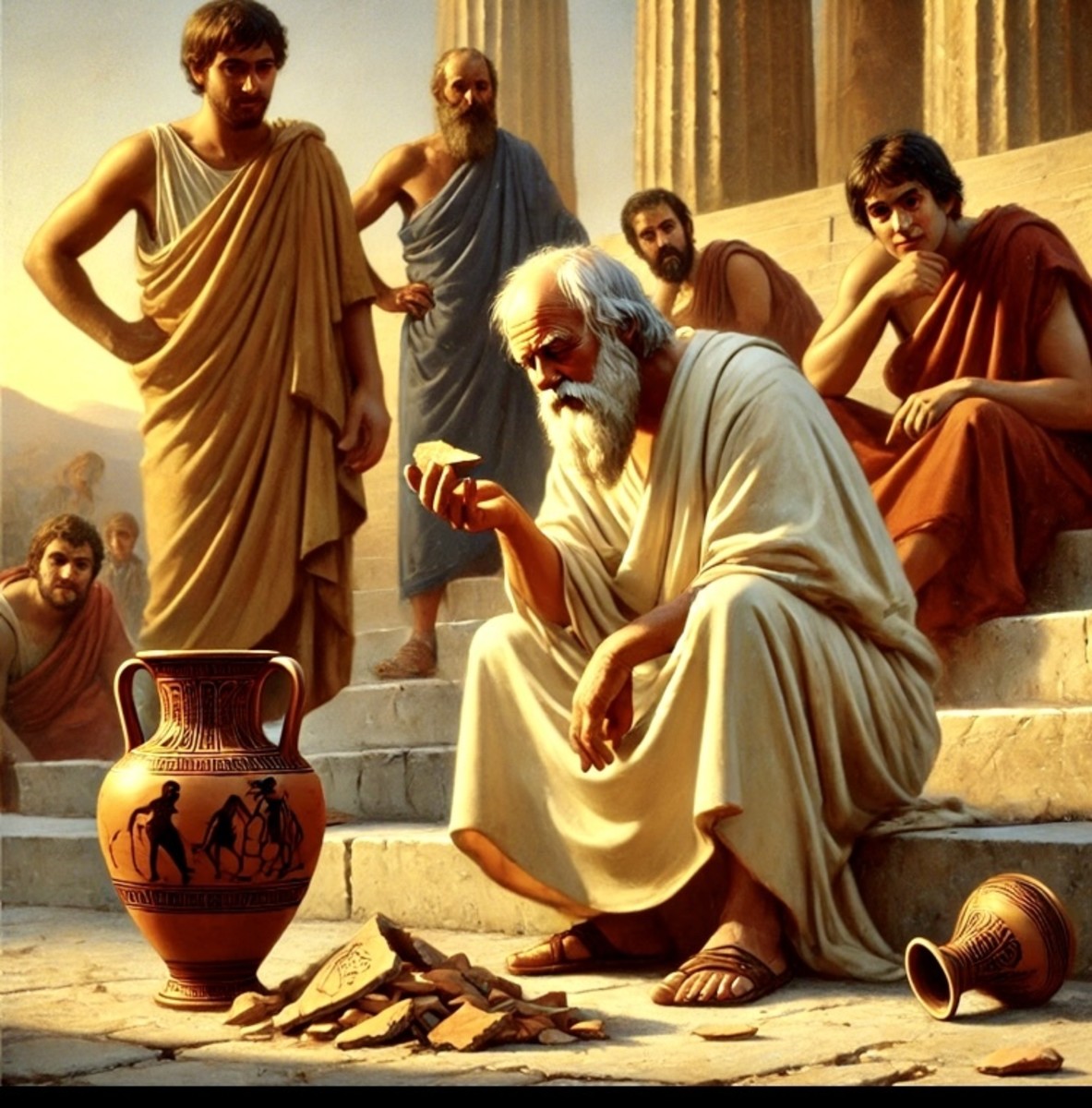Debate with a Doubting Prince
Introduction
This is based off of the Payasi Sutta, which can be found in the Digha Nikaya. The Amazon Link to the side of this introduction goes to a very good translation of the Digha Nikaya, and no Buddhist library is truly complete without it. If I find a version of this Sutta online, for free, I will happily link to it here.
This sutta talks a lot about different worlds, and of mythical places and creatures that would have very little meaning to the average westerner. I have omitted a great many things in substituting angels and demons for all of the creatures in the actual sutta, and for substituting heaven and hell for all the places. This decision removes a great education in ancient Indian culture, but makes the sutta more accessible to western readers, which is, of course, my goal.
Unfortunately, remaining true to a sutta, while trying to wedge it into a form it was never intended to take leaves one with something that, at best, comes off as a very awkward translation. So in the interest of keeping the Sutta readable, I've taken even more liberties than I normally would.
Which, in actuality, isn't such the tragic crime it might seem. Many Buddhists, especially western Buddhists like me, do not give all of the mystical things in our literature credence as being strictly literal. For instance, most Buddhists do not believe that the Buddha was born by stepping sideways out of his mother's stomach. It was poetic license to let the listener (written language came long after these stories were told) how special the Buddha was. And as we stride further into a more distant era, I am using my poetic license to preserve this story in a different form, and hopefully give it a little more relevance to a modern audience.
There are actually dozens of little morals tucked into this sutta, but being so closely tied to ancient Indian culture, I felt they lacked relevance. So I kept the two main ideas of the Sutta and cut out lots and lots of parables and repeating phrases. Those main ideas are themes that prove essential to Buddhism.
One of these ideas is that seeking answers about what happens after death is a waste of time--time that could have been spent in the present moment, dealing with relevant problems and improving one's life. There is no harm in speculating, of course, but as you will see-the subject of this story takes his speculation to absurd and eventually cruel levels. The danger of trying to find the truth of the afterlife is that one will be so obsessed that he forgets about this life. The other "big" moral of this sutta is one a bit less foreign to the western mind: that those who give generously to charity, but are begrudging about it, receive less merit than someone who gives to charity and is sincere about every cent.
On a final note, before letting this introduction be finished, I would like to express a desire that these interpretations not be viewed as a replacement for the suttas themselves. It is very possible that my understanding of the pali canon will not be anything like your understanding of it at all. These are not definitive, nor are they meant to be. Read the original suttas. Form your own opinion. Don't treat my interpretation as holy, just because I am dealing with sacred texts. I am carrying this project out partially for my own amusement, partially at the wishes of my deceased father, and partially because I think it will prove helpful to someone, somewhere, at some point in the future. I implore the reader not to mistake my intentions with this project for anything other than what I have stated.
Debate With a Doubting Prince
I'll impart you a story, friend, if you'll sit a while and listen.
Once there was a sage named Kumara, residing in a lean-to near the area we know today as Uttar Pradesh. Kumara was famed for being an unbeatable debater, and for being very wise.
It so happened that, in this same area, there lived a fearsome warrior-prince, who had many vassals and a reputation for conducting off the wall, and often times experiments. These studies were the prince's way of affirming his belief in total nihilism-an idea the Buddha had declared incorrect-and imposing this belief on those around him.
It was only a matter of time before the prince, desiring that everyone hold to his point of view, decided to debate Kumara and try to disprove the existence of heaven, hell, and the soul.
Amidst a great gathering of people, the prince met Kumara and issued him an open challenge.
"Venerable sage," the prince said so that all could hear him. "There is no world aside from this one. We are nothing after death, and there is no soul. There are no angels, there are no demons. What say you?"
"I say you're wrong," Kumara said. "Tell me, what leads you to believe as you do?"
"Many people die, every day, Kumara. Be they holy men, coughing their lungs up on a death bed, or be they criminals, awaiting the headman's axe. To every holy man who's perished from disease, I've posed him a question. ‘If you find your way to heaven,' I asked, ‘Come back and tell me you've done so. Or else send an angel messenger, or a sign.' To the criminals facing death, I told them, ‘When you reach hell, return here and tell me you've done so, or else send a demon, or send a sign. I will ensure your families are never for want if you do this for me.' Without exception, the holy men and the criminals all agreed. Not one of them, in a whole ten years of asking, has ever brought word of the afterlife, give a sign that there is life after death, nor sent a celestial messenger.
"What do you think, Kumara? Would a man who stole bread for his family not perform such a simple task, if it meant that his wife and children would be kept well the rest of their lives? Would a holy man, dedicated to good deeds, not send word to help ease a prince's troubled mind?"
Kumara waited until the prince had finished his long, long rant, and then gave an answer.
"Are the sun and moon separate from the earth, or connected?"
"They're separate, of course."
"Then you cannot deny that other worlds exist. It is only the worlds of the afterlife that you can question. And since other worlds exist, it is possible that worlds after death could exist."
"Well reasoned, but it proves nothing," said the prince, crossing his arms.
"Let me ask you two questions, then, my liege. If one of those criminals you executed had asked you if he could return to his family and give a message, would you have let him?"
"No," the prince said. "I'd have killed him straight away. You're comparing me to demons, then?"
"Don't twist my words. If you would not let a man who'd committed one crime cross a few streets to give a message to his family, why should a demon, punishing a man for a lifetime of sin, let him cross worlds do give you a message?"
The prince could do nothing but admit that Kumara had a point. "And what of the holy men?"
"The reason they've not returned is twofold. For the first reason, I offer you another parable."
"I'm listening," the prince said, certain the Kumara would not disprove that holy men would do good if they still existed in any capacity.
" Suppose a man fell into cess pool, filled with people's shit and snot, where a myriad insects and parasites had taken residence. You, being a most noble prince, walk along and help this man out of the sewer."
The prince bowed, as if he'd just performed a trick, and the observers all chuckled.
Kumara went on. "And being generous as well, you take this man to your palace and allow him there to live. You bathe away all of the slime and ichor he'd fallen into and treat him as if he were an honored guest, showering him with gifts, good food, and further providing him with women, conversation, and sport. Tell me, prince, would that man willingly leave your palace to jump into the sewer and save a drowning insect?"
"I don't think he would, no," the prince said, smiling. "Are you saying that people in heaven see us as insects?"
"I'm saying that our affairs concern them the same way an insect's affairs concern us. Now answer me another question, prince. Would your guest not enjoy his stay at the palace?"
"My guests are always entertained," the prince said, smugly.
"And are you not aware of how fast the day flies when you spend all of your time entertained?"
The prince frowned and said, "Yes."
"As fast as time goes by while we are entertained, time goes by ten thousand times faster in heaven. Even if one of your holy men remembered your request and took enough interest in it to answer you, your lifespan would have passed a hundred times over."
The crowd showed its approval, and the prince held up his arms, saying "Now just a damn minute! There's no way you can know any of that. No one can see into the afterlife. You can no more peek into heaven or hell than I can peek beyond the moon."
Kumara frowned. It was obvious to him that the prince was obsessed, but he knew that if he did not best him in this debate, he could never help him with his true problem. "You're wrong again, prince," he said. "Holy men and sages such as myself can see the next world. Meditation breaths insight into our eyes, and we can peek beyond layers of reality. I have a way of seeing that you do not. I can tell you for certain that these are true things."
"You can't prove that meditation gives you such powers."
"And you can't prove to a man born blind that light, darkness, and color exist. He must either believe it or delude himself. If you refuse to finish debating me because you cannot imagine someone seeing what you do not, your reputation will be severely weakened."
The prince knew that this was true, and though he doubted Kumara's powers, he said nothing else on the matter. Instead, he said, "So we'll move on then, won't we?"
Kumara nodded.
"You have won the debate about heaven and hell, but through trickery. I still do not believe you. But heaven and hell mean nothing without a soul. I contend that there is no soul, not inside of anyone, and I can prove it."
"I'm listening," Kumara said.
"A man caught stealing was brought before me for trial, and I sentenced him to death. Since the manner of his death could not possibly matter, I had him bound, gagged, and set inside a huge cauldron. Then I had the cauldron's lid sealed to the top. Then I had my finest leather worker shrink deer skin over the cauldron. And further, I had the local potter cake the entire thing over with dry clay, so that nothing-not an insect, not a mote of sand, could every escape.
"Then I had the cauldron put over fire, and it baked until the man inside died.
"When we opened it, there was no sign of his soul. When we removed the gag from his mouth, nothing came out. Then I ordered his body cut open and examined, and still there was no sign of a soul."
"Such an action will not live well with you, prince," Kumara said.
"But it proved that there is no soul."
"Prince, you have guards and concubines in constant attendance when you sleep, yes?"
The prince nodded.
"And when you sleep, you often dream. You see places far away, you see possibilities remote and unlikely."
"Everyone dreams. What is your point?"
"You know for fact that, when you dream, you go elsewhere. Have any of your concubines ever seen your soul depart? Have they ever seen it return?"
"No. But--"
"And of course they've never seen you stand up, asleep still, and travel physically to the locales of your dreams."
"No, but if I exist in a world without a soul--"
"But you still have dreams, do you not?" Kumara asked.
"I do," the prince said, his face flushed. None had dared to interrupt him talking, save his father.
"Kumara, in a dream you can be pleasured by the most beautiful women in the world. You can be savaged by the most terrible demons imaginable. Yet, always, when you awake, you find that none of these things happened. Thus, your body is not experiencing those distant places, nor those distant dreams. Yet you experience them, you remember them, and they stay with you as do memories. Tell me, prince, if something besides the body does not exist, what experiences the dreams?"
The prince was silent. An argument welled deep inside him, but he could not make it suitable for the debate. He did not sit comfortable with this answer, but with no way to say otherwise, Kumara received yet more cheering from the onlookers.
"That covers all your contentions, I believe, noble prince," Kumara said at last. "You cannot disprove heaven, hell, or the soul, yet I can prove beyond any doubt that there is a possibility for such things to exist."
"The absence of evidence is also evidence of absence, Kumara," the prince said. "I refuse to believe any of this."
"Can any man be so powerfully certain of anything, without ever having room for error? I tell you, good prince, that layers and layers of reality all exist, one atop the other, always as close to our world as heat is to fire, yet never able to touch. Do not be the blind man who runs through the streets, declaring light and color to be a myth."
"I could never believe as you believe. If I changed the way I thought because of this debate, I would seem a fool before all the other gentry."
"Your nihilism harms you more than you can ever know, good prince. You are like a farmer, who, needing fuel, fills a burlap sack with old dung and carried it back with you. The farmer thinks he can light the dung on fire, but on the way back it begins to rain. The dung seeps out of the sack and onto all of his clothes. He must abandon the sack before it sullies his health as well as his skin. Abandon your sack of dung, good prince, for that is all you possess."
"Is it proper in debate to just declare another man's position dung?"
Kumara shot upright and stared down the prince. "You're obsessed with things that don't matter! You baked a man alive to prove a point, prince. That is an action worthy only of the most terrible monsters that a mother could ever scare her child to sleep with. See the extremes you've gone to, just to try and prove a point? It hurts you and all the people around you."
There was fear in the crowd that the prince might punish Kumara for his words, and the stillness could have been cut with a sword. But no one had ever been honest with the prince before. No one had ever confronted him and said, "Enough." And yet, that was all it took. With tears welling in his eyes, the prince bowed before Kumara and submitted the debate.
"Your wisdom has clearly bested me, Venerable Kumara," the prince said. "What are the tenets of your way?"
And for the first time, the prince heard the words of the Buddha, transmitted to him through a disciple. Kumara explained the three refuges, and then gave a sermon on generosity. The sermon inspired the prince, and from that day onward he kept established charities in the influence of his rule, giving to any who asked, regardless of their caste.
Some years later, the prince died and the weight up his charity brought him up to a middling level of heaven. Even inspired to such generosity, the prince was ever begrudging of his wealth. Higher in the stations of heaven was the man who managed the day-to-day needs of the charity, and saw that it was distributed in a kind and just fashion.
And the prince, remembering that he once shared much in common with those on earth, sent a message back to all those who once had been near to him, saying, "My vast generosity earned me only a temporary and middling position in the heavens, while my slave was carried to one of the highest stations. Heed my advice, and do not begrudge that which you offer."










